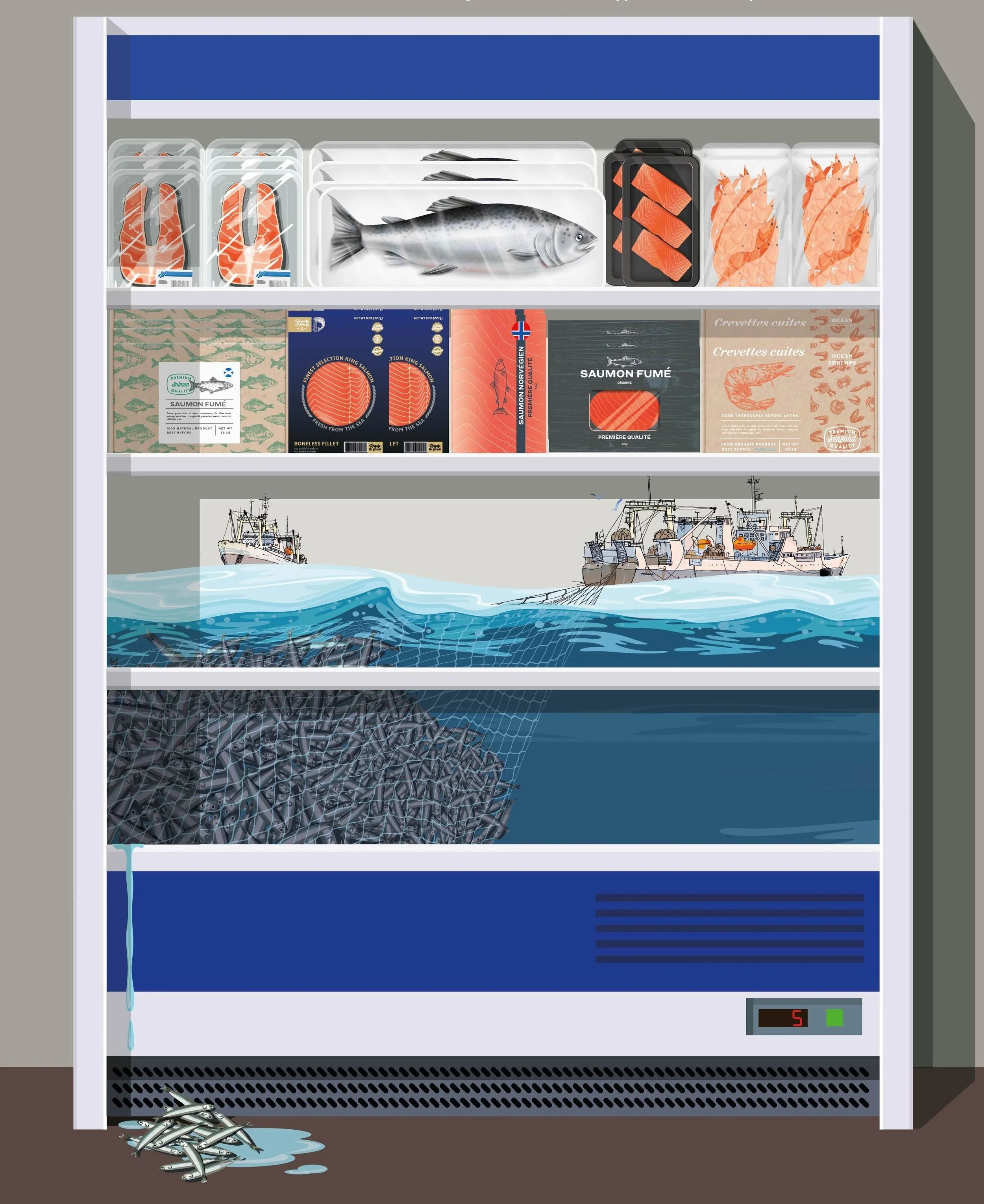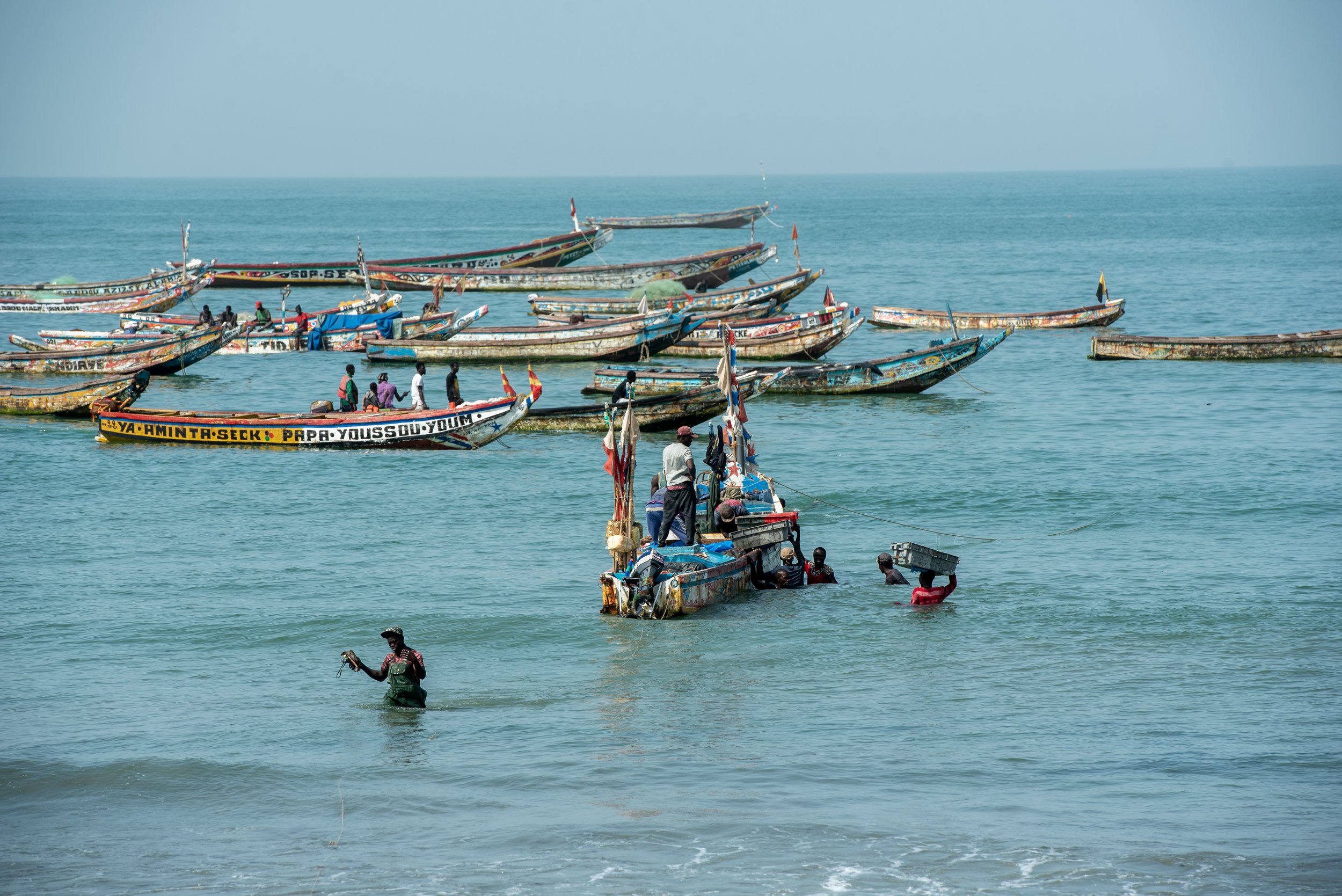A new report from Changing Markets foundation ranks eight French retailers on how they are addressing the sustainability implications of the farmed seafood they sell
Almost one fifth of the global fish landings is used to produce fish meal or fish oil (FMFO) to feed livestock and farmed fish in aquaculture. As this industry expands, it is increasingly putting pressure on certain fish stocks used to produce FMFO. In West Africa, small pelagics stocks, especially sardinella, traditionally caught by artisanal fishermen, processed by women and consumed by the local population, are increasingly been overfished to supply fishmeal factories in Mauritania, Senegal and The Gambia, putting food security of the region at risk.
To raise awareness on this issue, the Changing Markets foundation published in October 2019 an in-depth report on the catastrophe of fishmeal production in the world, including the case of The Gambia. It stated that fishmeal industry was “precipitating the collapse of fish stocks, compromising food security, and destroying the social and economic fabric of communities living adjacent to historic fishing grounds.”
Following this report, the Foundation has carried out studies scoring how supermarkets in different Western countries (Germany, UK, Austria…) tackled the use of wild in their aquaculture supply chains and they conclude that consumers are largely unaware on the social and environmental impacts of aquaculture. For example, UK consumers unknowingly consumed 172g of wild fish for every 100g of farmed fish eaten, “almost all of which could have been eaten directly by people.” French are the third largest consumers of seafood in Europe, yet supermarkets “lack transparency” and it is very difficult “to know the production method or the country of origin of many products.”
However, through its previous research, the foundation found that the two largest producers of farmed salmon, the Norwegian companies Mowi and Lerøy, source large quantities of fishmeal and fishoil (FMFO) from West Africa and Peru, where there are numerous environmental and social issues related to FMFO “including the collapse of fish populations, illegal fishing practices and the depletion of fish stocks.”
The report suggests alternative methods of fish feed such as insect-based and concludes with several recommendations for retailers, consumers and fish farmers, calling them to eliminate FMFO from wild-caught fish from their supply chains by 2025. “Supermarkets have considerable power to influence,” said Juan-Felipe Carrasco, author of the report. “In their role as intermediaries between aquaculture producers and consumers, they are the most powerful players in the market.”
More information:
Read the full report “Dans les mailles du filet” by Changing Markets
Fishmeal booming industry in West Africa: depleting small pelagics stocks
Mauritania: how to ensure the sustainable exploitation of small pelagics
Report “Fishing for Catastrophe” – on fishmeal industry, including the case of The Gambia, by Changing Markets
What can you do: recommendations to reduce the use of FMFO for consumers, retailers, industry and policy-makers
Banner illustration: Courtesy of Changing Markets Foundation.








The Joint Committee of the EU-Mauritania SFPA will meet in Nouakchott from 4 to 6 December 2024. In this article, the author makes a number of recommendations in the light of the conclusions of the Fishery Committee for the Eastern Central Atlantic (CECAF). In its latest report, CECAF described the catastrophic situation of shared stocks of small pelagics and recommended a substantial and immediate reduction in fishing effort of 60% for flat and round sardinella.